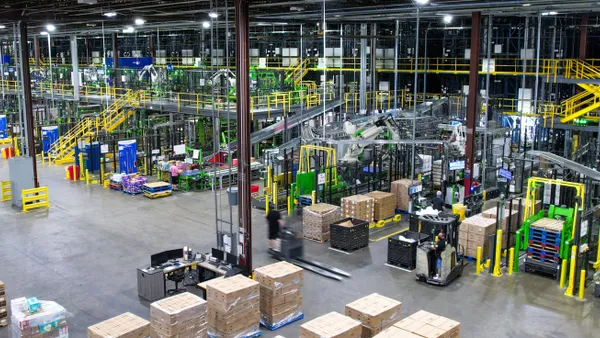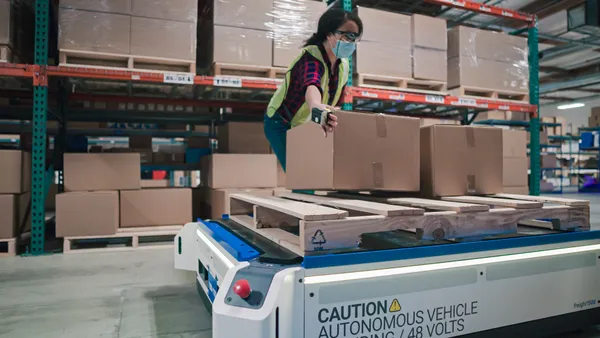Dive Brief:
- Basic changes can have a significant effect on cost and natural resources impact, according to data from denim manufacturer Saitex International Dong Nai Co., which was recently shared with Supply Chain Dive.
- Often named by customers including Everlane, G-Star Raw and J. Crew as the world's most sustainable producer of denim, the Saitex factory in Vietnam saves roughly $400,000 per year by recycling water alone.
- The factory also made changes to its energy consumption, resulting in savings of 13 million kWh per year.
Dive Insight:
Change and commitment to sustainability comes at all levels of the supply chain. More than 40 retailers, brands and suppliers signed on to a fashion industry climate charter last week with a common goal of net zero emissions, but each company will have its own strategy and approach to meet the goal.
The Saitex factory's strategy has been to go after the "low-hanging fruit," said CEO Sanjeev Bahl at the Sourcing Journal Summit in New York City in October, and often that pursuit means questioning basic assumptions.
"Why do we need to switch on the lights during the daytime?" he asked. That question eventually led the company to use natural light when available and install some solar-powered lights as well as air-drying denim.
Saitex has also changed some traditional practices in denim manufacturing to decrease the water and energy required. The treatment of denim for feel and effect is usually a resource-intensive part of the process. The LEED-certified factory produces 18,000 pairs of jeans per day using lasers for distressing instead of hand-distressing, saving on CO2 emissions, according to the company.
Bahl made clear that sustainably has to be part of the fundamental strategy of a company in order to come up with solutions that are both sustainable and make business sense.
"Continuous improvement means continuous investment. Somewhere down the line you break through to innovation and that innovation is priceless," he said.














